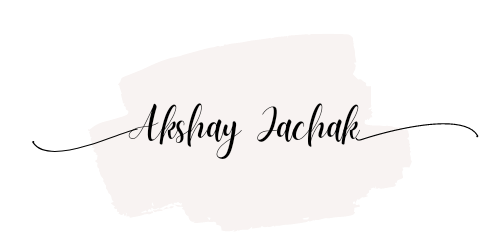I was always fascinated by the stock market and all that comes with it. I started in 2012-13 when I was a little over 18. in 2016-17, I also tried my hand at value investing by reading books like‘The Warren Buffet way’ and ‘The Intelligent Investor'. Then I moved on to Technical Analysis which I like a lot. I have been a regular in this field since 2020. I have made some money in markets and made losses as well. In the last 2.5 years, with technical analysis, I think I have found my ground having made good profits (Nothing big, I am still learning.) for 2 consecutive years (Especially 2022 because it was not a great year for markets but I still did well according to my standards). All the credit goes to my gurus, The Malkans. I highly recommend you their book and courses if you are serious about it.
During this journey, I realized that trading/ investing is 20% technique, 80% mindset! It is very crucial that you make the right decisions under pressure. And if you are trading intra-day, the pressure is even greater. Recently, I was listening to an episode of The Knowledge Project podcast by Shane Parrish of Farnam Street. He was speaking with Maria Konnikova who talked about how she used her emotions to master high-stakes decisions. I could now connect the dots between the ability to make high-stakes decisions and trading. Trading is like a game of poker, chess, and video game all rolled into one. It is an exciting venture and a skill that has the ability to make you financially free if done correctly.
I could relate particularly to a point she made about putting a monetary value on an opinion, which is what we do in trading all the time. It forces me to stop and think whether the trade is worth it. It is easy to run behind the price (as we traders say). But the real power is pausing and reflecting before taking the trade. As a thumb rule, I have to have the entry price and stop loss price pre-determined before I take any trade. This helps in making decisions based on facts rather than emotions. I identify a stock, look at the charts, and decide to take a trade. Depending on the risk-reward ratio and the confidence I have in my analysis, I can invest a certain amount of money (Which is essentially betting money on that particular stock).
Here are two scenarios for some trades I took:
-
Ended up in a lot of profit but originally shouldn't have been taken(Hasty/high-risk trades):
Although I did end up making a lot of money in the first scenario, it could have ended up very well in big losses had it gone the opposite way. To sum up, I took a bigger risk than I should have.Such trades, if gone wrong; can make you feel miserable and can throw you out of the markets forever. This taught me the value of calculating my risk before taking any decision.
-
Ended up in a small loss, but had more probability of success (Low risk, low probability):
This scenario did not make me feel bad because I knew that even if I lost, I would lose a small amount (Fits my risk appetite).
Such trades made me realize that my decisions may not always end up with the desired outcome. What I need to control is my risk. Hence, when I put a monetary value on my guess/ analysis, I become more responsible and that enables me to make better judgements.
Also, I took so many trades (Over the last 2.5 years) that, I have learnt a lot from each of them. Many of them failed and I used to feel miserable at times looking at the P&L statement. But, unknowingly I was doing more and more iterations of the process until I became good. Well, at least I’m somewhat better now that I made money in 2022 so it was no fluke for sure.
I have done numerous trades over the last 2 years. Each of them was like a small iteration which ended up teaching me at least something. we need to journal our trades and the reason behind it, as the emotions at the time of taking the trade. I have not done this religiously for each trade but I have written it down for most of the trades.
A few weeks after taking the trade, I again evaluate the following:
- What was I thinking there?
- Why did I think what I thought?
When I thought about these things after a while, I realized that I have taken emotional decisions rather than calculated risks. That was an indication that I have improved as a trader. Then I try to not repeat that mistake (Of course 99% of the time, you will not come across the same scenario again anytime soon). It is kind of a feedback loop that helps enhance my skills.
Trading is only for the dedicated and disciplined. it is a skill that will pay you exponentially as you go along. So are thinking and making the right decisions. After the losses, profits, and blunders throughout this journey, I have definitely become a better trader. But more importantly, I have become a better thinker. That is a skill which is quite underrated. We need better thinkers, especially in today’s world where everyone thinks they know everything they are talking about. But not many contemplate what they are talking about. I have been able to apply this model to other parts of my life. I have benefitted greatly in my career as well this year. You too can utilize this skill for your own benefit and I sincerely hope you do. Happy thinking 🙂
